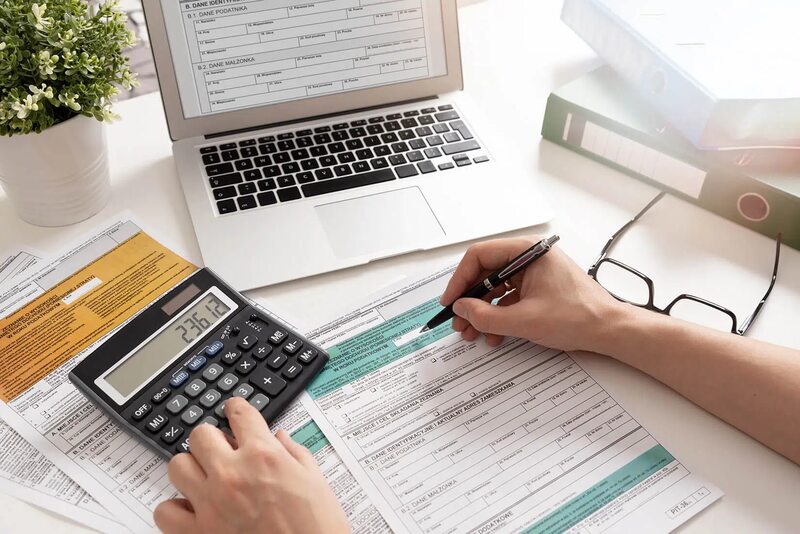Planning for tax is a very important part of managing finances, it helps individuals and businesses to decrease their tax responsibilities legally. When you use planned methods, it's possible to reduce the amount of taxes you need to pay while still following all the correct rules. In this article, we will go into detail about different useful strategies for planning taxes that can assist you in making your financial situation better and saving more money.
Understanding Tax Planning
Firstly, let us get a grasp on what tax planning is. Tax planning means examining your money situation and finding ways to lessen taxes. It includes deciding carefully about investments, expenses, and other financial things to decrease the amount of tax you are responsible for in a legal way. Tax planning that brings good results is a result of thinking about many things, such as where your income comes from, what deductions and credits you have, and the tax laws that apply to you.

Tax planning also means taking actions in advance to make the most efficient financial choices during the whole year, rather than only responding to tax duties at year-end. If you keep track of your money movements and evaluate how they will affect taxation constantly, it is possible to find chances for saving on taxes and use methods as needed. This method helps people and companies stay prepared for alterations in tax rules, picking options that match their general financial goals.
- Regular Review: Regularly review your financial situation to identify changes that may impact your tax planning strategy, such as changes in income, expenses, or tax laws.
- Forecasting: Utilize financial forecasting tools to project future income, expenses, and tax liabilities, enabling you to plan proactively and make strategic decisions to minimize taxes.
Maximizing Deductions and Credits
A key tactic is to make the most of deductions and credits. Deductions lessen your taxable income, but credits give you a direct cut in the amount of taxes owed. For individuals who want to increase their deductions, they can use different tax-deductible expenses like interest on mortgage, charitable giving, medical costs, and costs related to business matters. Also, you can look at tax credits that are accessible like the Earned Income Tax Credit (EITC) or Child Tax Credit to reduce your tax responsibility even more.
It's important to keep thorough records of your deductible expenses throughout the year to ensure accuracy when claiming deductions on your tax return. Maintaining organized documentation, such as receipts, invoices, and statements, can streamline the tax filing process and help substantiate your deductions in case of an audit. Additionally, staying informed about changes to tax laws and regulations can help you identify new opportunities for deductions and credits that may benefit your tax situation.
- Documentation: Keep detailed records of all deductible expenses, including receipts, invoices, and statements, to support your claims and minimize the risk of audit discrepancies.
- Tax Law Updates: Stay updated on changes to tax laws and regulations to identify new opportunities for deductions and credits that may impact your tax planning strategy.
Utilizing Retirement Accounts
Retirement accounts, like 401(k)s, IRAs, and SEP-IRAs can bring significant benefits in terms of taxes. Many times when you put money into these kinds of accounts, it becomes tax-deductible which means that it lowers your taxable income for the present year. Also, profits from investments inside the account increase without being taxed until you take them out. This helps in growing your savings over time because there's no need to pay taxes on any gains or income made within this period (Tax-Sheltered Growth). People can reduce their current tax bill and save for the future by smartly contributing to retirement accounts.
Think about how contribution limits, rules for eligibility, and the types of investment can add to the tax benefits of retirement accounts. Also, look into retirement plans offered by your employer like 401(k) matching contributions that could give you more chances for saving on taxes. Keep a habit of looking over and changing your strategy for saving in retirement. This helps you make sure it matches up with long-term money aims and new tax situations.
- Contribution Limits: Be mindful of contribution limits for retirement accounts to avoid exceeding thresholds and potential tax penalties.
- Roth vs. Traditional: Evaluate the benefits of Roth and traditional retirement accounts based on factors such as current tax bracket, future tax expectations, and retirement goals.
Employing Tax-Efficient Investment Strategies
The choices you make in investing can greatly impact your tax responsibility. Using methods that are tax-efficient for investment may help to reduce the amount of taxes owed on income from investments and gains made on capital. One method could be concentrating on investments that receive special tax treatment, like municipal bonds or qualified dividends. Moreover, you can make use of tax-loss harvesting to balance capital gains with capital losses and lessen your total tax load.
Think about how the time when you invest affects your tax responsibility, especially concerning short-term and long-term capital gains tax rates. By keeping investments for a more extended period, there is a chance that you might be able to meet requirements for smaller taxes on capital gains. This could improve your returns after taxes are taken out. Another important aspect to think about is spreading your investment portfolio across various asset types and tax-handling methods. Doing this can help in reducing tax risks while also enhancing overall effectiveness in taxation matters.
- Capital Gains Rates: Understand the difference between short-term and long-term capital gains tax rates and consider holding investments for longer periods to qualify for lower tax rates.
- Asset Allocation: Diversify your investment portfolio across various asset classes and tax treatments to optimize tax efficiency and mitigate risk.
Timing Income and Expenses
The year you pay taxes is influenced by when you receive income and face expenses. If you can manage the timing of these two elements, it might assist in optimizing your situation for taxation. For instance, delaying income to coming years or speeding up the payment of deductible expenditures into this present year can aid in decreasing taxable earnings and minimizing your tax duty. But, it is important to think about the effects of timing decisions in the future and make sure they follow tax rules.

Think about the benefits of income averaging over several years, not just in one tax year. If you spread your income or expenses across different tax years, it can help lessen changes in how much you owe for taxes and possibly lower your total tax load. But, it's important to talk to a tax expert first and make sure that using methods for averaging income matches with what you want financially and also follows the correct rules about taxes.
- Income Averaging: Explore income averaging strategies to spread out income or expenses over multiple tax years, reducing fluctuations in your tax liability.
- Tax Year-End Considerations: Take advantage of tax planning opportunities before the end of the tax year, such as making charitable contributions or prepaying deductible expenses to maximize tax savings.
Seeking Professional Guidance
Understanding tax planning can be difficult, especially since tax laws are always changing. If there is a need for it, it's good to ask advice from people who are experts in taxes like tax advisors or CPAs (certified public accountants). They will give useful information and make sure that you follow the rules correctly. These professionals can assist in creating custom-made plans for your taxes based on what you want to achieve financially and where things stand now. This way they aim to help increase savings from taxes while reducing dangers associated with them.
Besides tax planning advice, tax professionals can also help in the actual preparation and filing of taxes. They may represent you if there is an audit or disagreement with the tax authorities. When it comes to complex matters such as taxes, having expert assistance not only saves time but also lessens the chance of mistakes or omissions that could cost you later on. Additionally, maintaining a steady relationship with a reliable tax advisor can bring continuous guidance and comfort when facing changes in your financial status and taxation environment.
- Tax Preparation Services: Utilize tax professionals for assistance with tax preparation, filing, and compliance to ensure accuracy and minimize the risk of errors.
- Long-Term Planning: Develop a long-term relationship with a trusted tax advisor to receive ongoing support and guidance as your financial situation evolves and tax laws change.
Conclusion
People and organizations, who want to make the most of their money and lower their tax load, must use good tax planning. This includes using methods like increasing deductions or credits, using retirement accounts, investing in ways that are good for taxes, timing income and expenses well, and looking for professional advice (Tax Planning Strategies). This way can help you cut down your total amount paid in taxes while still making sure that you follow all the rules set by law on taxation. Planning your taxes actively can result in big savings and add to how healthy you are financially.

Exploring Tax Planning Strategies

Ways To Report 1099-MISC Box 3 Payments on Your 1040 for Tax Year

How YouTube Makes Money Off Videos

The Ultimate Guide to 529 Plan Withdrawals for Private Schooling

What Is Expected Value (EV)?

In-Person or Online Loans: Finding the Perfect Fit for Your Needs

Guide to Penalty-Free Early Withdrawals from Your IRA

USDA Home Loans: Everything You Need to Know

When to Expect Your Tax Refund

Different Ways Home Buyers' Agents Earn Their Money

What Is a Co-Borrower? A Comprehensive Guide to Co-Borrowing
